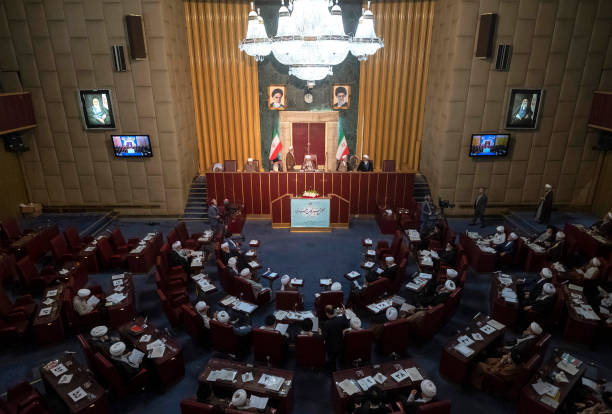Tehran, June 25, 2025 – Iran’s parliament voted overwhelmingly to suspend cooperation with the International Atomic Energy Agency (IAEA) following recent US and Israeli attacks on its nuclear facilities, escalating tensions in the region.
In an open session on Wednesday, Iranian lawmakers approved a bill to halt IAEA inspections, surveillance, and reporting with a vote of 221-0, with one abstention out of 223 members present. The decision, which awaits final approval from Iran’s Supreme National Security Council, responds to US airstrikes on Sunday targeting nuclear sites in Natanz, Fordow, and Isfahan, and Israel’s earlier attacks starting June 13. Iran’s Atomic Energy Organization (AEOI) condemned the strikes as violations of the Nuclear Non-Proliferation Treaty (NPT) and international law, including the United Nations Charter.
The bill stipulates that cooperation with the IAEA, including access to nuclear facilities and surveillance data, will remain suspended until the security of Iran’s nuclear sites is guaranteed. Parliament Speaker Mohammad Bagher Qalibaf stated that the IAEA’s failure to condemn the attacks undermined its credibility, prompting Iran to accelerate its peaceful nuclear program. The AEOI emphasized that the strikes would not deter Iran’s nuclear ambitions, asserting its right to defend its sovereignty.

The US and Israeli strikes caused significant damage to key nuclear infrastructure, with Natanz’s electricity systems and centrifuge halls hit, alongside buildings at Isfahan and Fordow. No off-site radiation increases have been reported, but IAEA Director General Rafael Grossi has called for immediate access to assess the damage, warning of potential radiological risks if attacks continue, particularly at the operational Bushehr Nuclear Power Plant. Iran’s move to suspend IAEA cooperation could complicate ongoing US-Iran nuclear talks in Oman and raise concerns about unmonitored uranium enrichment, with Iran reportedly holding 9,000 kg of enriched uranium, some at near weapons-grade levels.
Iran’s parliament also criticized the IAEA for alleged bias, accusing it of enabling espionage through its inspections. Lawmakers are considering further steps, including a potential exit from the NPT, which could isolate Iran diplomatically and risk renewed UN sanctions. The international community remains on edge as Iran vows to retaliate while pursuing its nuclear goals.




